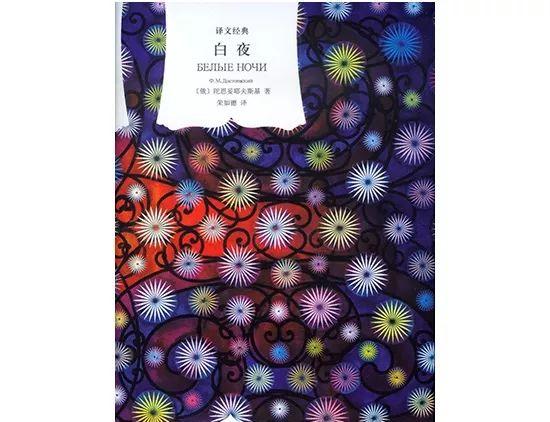Today is the ninth issue of "Wenzhi Reading Garden".
This column is a small reading column cooperated by Shanghai Translation Publishing House and The Zhixing Society of Beijing University of Foreign Chinese. The recordings posted here, the people reading aloud are ordinary college students, and the reading experiences they have written down. This is the voice and text of youth, I hope the majority of readers like.
The ninth issue is the works of Dostoevsky
White Nights

[Russian] Dostoevsky
Translated by Rong Rude
The following is a reading by Zhang Jiaqi, a student of the North Foreign Knowledge Society
White Nights – a natural phenomenon peculiar to Russia: on summer nights, the sun will not set, and everything will be wrapped in a light veil. In the hazy and soft white night, good feelings are quietly happening... All this is recorded in the Russian writer Dostoevsky's short story "White Nights".
"White Night" uses the beautiful language of poetry and in the form of dialogue to tell the story of the protagonist's young man and young woman meeting, acquaintance and parting from the perspective of the first person. The young man is alone, looking forward to the arrival of love; the young woman arrives at the date, but the sweetheart does not appear. The two met on the white nights of the summer in Petersburg and spent four wonderful nights together. Young men fell in love at first sight, and young women gradually developed love for young men. Just when the two expressed their hearts to each other, the young woman's sweetheart suddenly arrived, and the young woman ran to her sweetheart, leaving the young man with dream-like, sweet and bitter memories...
In White Nights, the author mainly creates two images. One is a kind, autistic, fantasistic young man. He is lonely and unsociable, living in fantasy all day. He fantasized that he had been in a few violent relationships, but had not actually spoken a few words to the opposite sex. The other is a simple-hearted, emotional young woman, Nasjanka, who has lived with her blind grandmother since she was a child. Grandma was old-fashioned and conservative, afraid that her granddaughter would leave her, and even used a pin to pin the girl's skirt to her own clothes. The girl has no friends since she was a child and has never been far away. Later, a male tenant stayed at the girl's house, and the girl fell in love at once. The two met a year later, and the girl waited for the arrival of the male tenant. From the dialogue between the two, I saw the romantic, kind and simple young man, and also saw the girl's infatuation and directness, innocence and cuteness.
The novel, both in terms of its writing style and the subject matter of its presentation, is very different from other Russian nineteenth-century works. From the perspective of writing techniques, 19th-century Russian works often have a lot of environmental descriptions, and greatly exaggerate the costumes and appearance of the characters (such as Turgenev's "Hunter's Notes", Gogol's "Dead Souls", etc.). And "White Night" unfolds through the dialogue between the two, concise and clear. The appearance of the two people is not mentioned throughout the text, leaving the reader with room for imagination and creating a hazy poetic beauty. The novel also does not explain the background of the story, adding a quiet atmosphere of isolation to the two people. This way of writing gives people the feeling of being just like the title of the book "White Night"—a quiet night, hazy and beautiful. The theme of White Nights is also very different from that of its contemporaries. Most of the 19th-century novels focused on the corruption and hypocrisy of high society, the despicable depravity of the stupid children, the repression of human nature by serfdom, and the inferior status of women (such as Karamzin's "Lisa of The Bitter Fate", Herzen's "The Magpie Who Stole Things", Ordoevsky's "Duke Miss Kiki", etc.). And "White Night" takes a different path to celebrate the innocent and beautiful heart and noble moral sentiments, which is a touch of human brilliance among many tragedies.
In short, I like "White Night" very much, like the concise and beautiful text in the book, like this wonderful and moving story, and like the pure and simple feelings. Please open "White Night", walk into the white night, and listen to the story of the white night together.
Text: Zhang Jiaqi of the Northern Foreign Knowledge Society
Click on the title number below to review the past period
Phase II
Issue 8
I would like to thank the Zhixing Club of Beijing University of Foreign Chinese for its help
Welcome to pay attention to the public account of The Northern Foreign Knowledge Society
Search ID: zhixingshebw to add attention
Shanghai translation
Literature | Social Science | Scholarship
Famous | masterpieces | translations
Long press to identify the QR code to follow
Or search for the ID "stphbooks" to add a follow